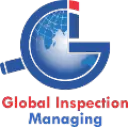Introduction – Why Comparing Taiwan and China’s Quality Control Matters
In the global manufacturing landscape, Taiwan and China are prominent players, each with unique approaches to quality control (QC). Understanding the distinctions between their QC practices is crucial for businesses aiming to source products that meet international standards.
Manufacturing Landscape Overview
Taiwan Overview
Taiwan is renowned for its advanced manufacturing capabilities, particularly in sectors like electronics, semiconductors, and textiles. The island’s emphasis on innovation and precision has established it as a hub for high-quality production.
Strong quality control in Taiwan, supported by regular factory inspections and supplier audits, ensures that products consistently meet global standards, especially in highly specialized industries like semiconductor fabrication and precision engineering.
China Overview
China, with its vast manufacturing base, produces a wide array of products ranging from consumer goods to industrial machinery. Its scale and diversity make it a global manufacturing leader, though quality standards can vary across regions and industries.
Implementing effective quality control in China, along with thorough product quality inspections and supplier evaluation processes, is crucial to maintaining consistency and meeting international requirements, especially as the country continues to evolve from mass production to more advanced manufacturing.
Common QC Challenges in Each Country
QC Challenges in Taiwan
• Supply Chain Complexity: Managing a diverse supplier base can lead to inconsistencies in quality.
• Cost Pressures: Balancing cost reduction with maintaining high-quality standards.
QC Challenges in China
• Regional Variations: Quality standards can differ significantly across provinces.
• Supplier Reliability: Ensuring suppliers consistently meet quality expectations.
How Third-Party Inspection Ensures Consistency Across Both Markets
Engaging third-party inspection services provides an unbiased assessment of manufacturing processes and product quality. These services help identify potential issues, ensure compliance with international standards, and enhance the credibility of the manufacturer’s quality control efforts.
Which Country Is Better for Quality- Focused Buyers?
For businesses prioritizing stringent quality control, Taiwan’s consistent adherence to international standards may offer an advantage. However, with diligent supplier selection and robust third-party inspections, high-quality products can also be sourced from China.
How GIM Helps Ensure Quality Across Both Regions
Global Inspection Managing (GIM) offers comprehensive inspection and quality control services tailored to both Taiwan and China. Their team of inspectors, auditors, and lab experts specialize in various industries, ensuring products meet all safety and performance standards for the destination market.
Conclusion
Understanding the nuances of quality control in Taiwan and China is essential for businesses aiming to source high-quality products. By leveraging third-party inspection services and collaborating with experienced partners like GIM, companies can navigate these markets effectively and ensure product excellence.
FAQs
Taiwan generally maintains higher and more consistent quality standards. However, with proper due diligence, quality products can also be sourced from China.
Taiwan typically has more rigorous and transparent inspection processes, while China may have varying standards depending on the region and supplier.
Third-party inspections provide unbiased assessments, ensuring compliance with international standards and identifying potential issues before they reach the market.
Taiwan is known for its high-quality electronics manufacturing. However, China also produces a significant volume of electronics, and with careful supplier selection, quality can be ensured.
ISO certification indicates that a manufacturer adheres to international quality management standards, providing assurance of consistent product quality.
By understanding these aspects and partnering with reputable inspection services, businesses can make informed decisions and maintain high-quality standards in their products.

